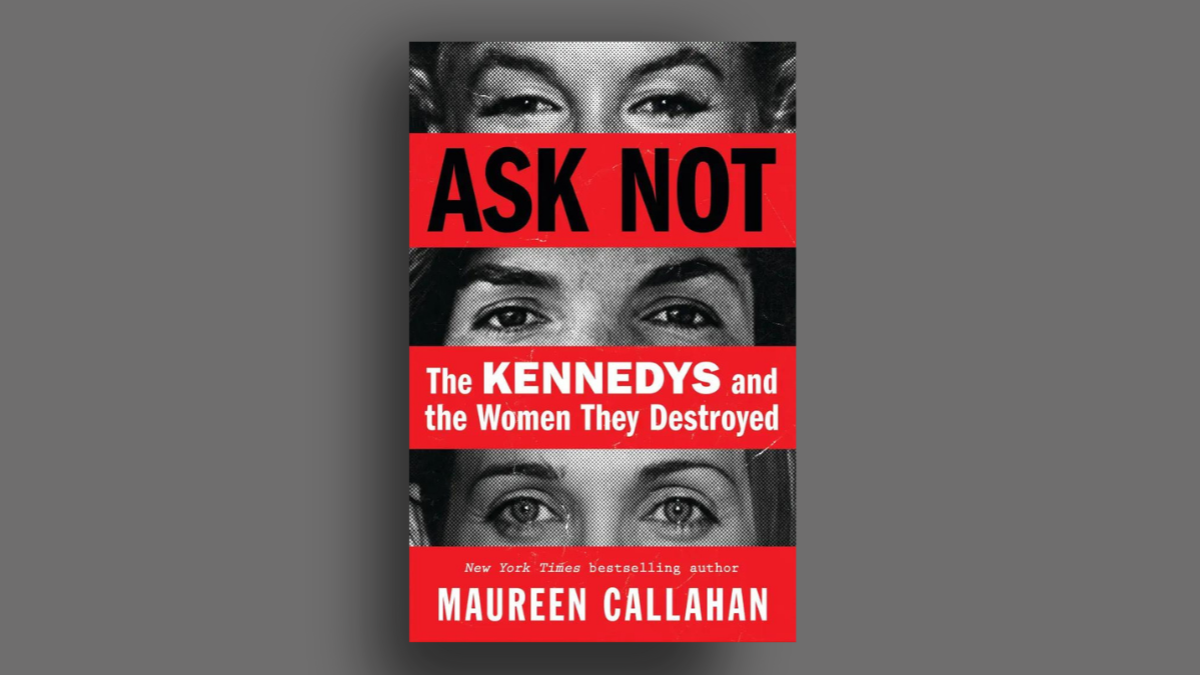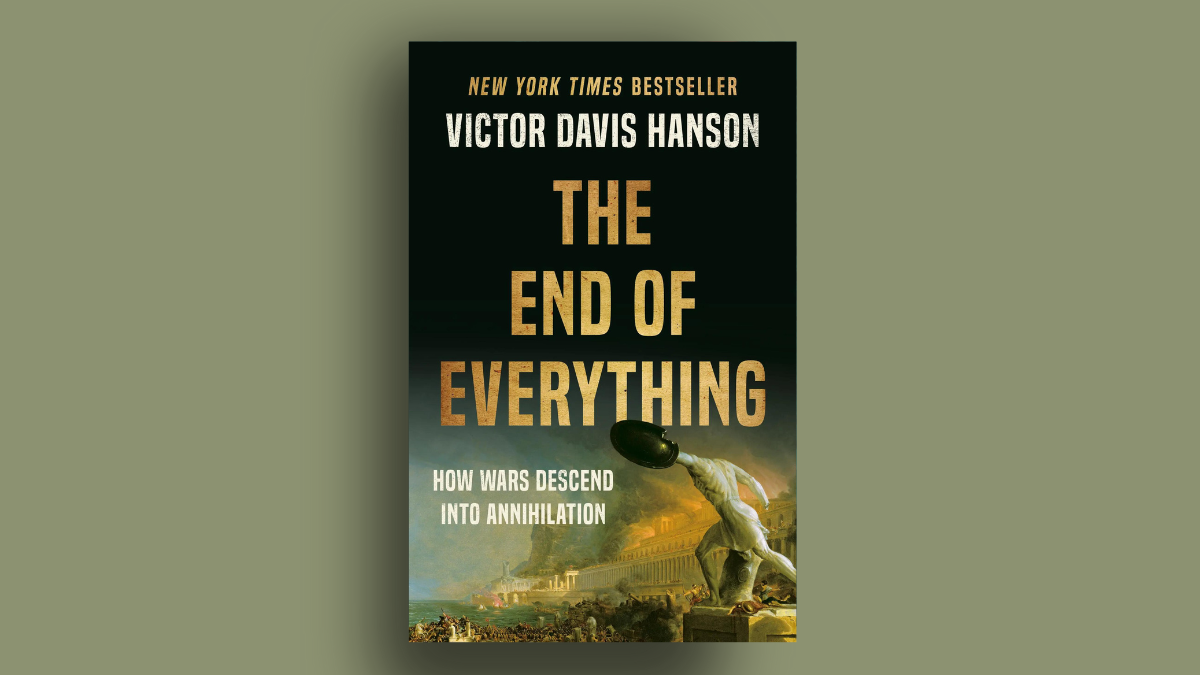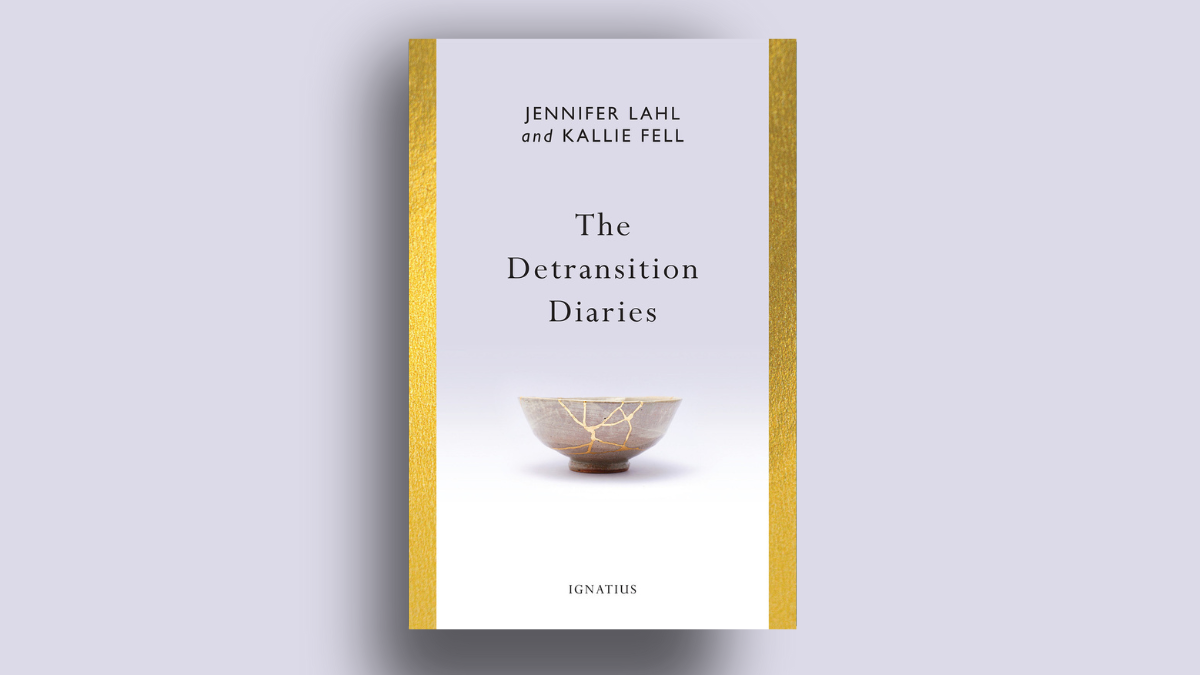
Editor’s note: This is the first annual collection of suggested summer reads from Federalist friends and contributors. Directly below, you may browse slideshows of the books on the list with quick links to their Amazon pages. Following are the full recommendations.
Literature
Politics
Culture
Now, on to the list.
David Azerrad
“Brave New World,” Aldous Huxley. To the best of my knowledge, no one has written the definitive book on modern liberalism—the great intellectual disorder of our age. Aldous Huxley has come close, unwittingly perhaps, with “Brave New World” (1932).
Huxley’s novel doesn’t get everything right—smoking, for example, is still permitted in his dystopian future world-state—but he does understand what makes the bitter pill of statism digestible. As he explains in the preface: “As political and economic freedom diminishes, sexual freedom tends compensatingly to increase. And the dictator…will do well to encourage that freedom. In conjunction with the freedom to daydream under the influence of dope and movies and the radio, it will help to reconcile his subjects to the servitude which is their fate.”
Why bother with Orwellian tyranny when soma—the magical drug which has “All the advantages of Christianity and alcohol [but] none of their defects”—and other forms of entertainment can just as effectively crush the Madisonian vigilant and manly spirit of the people?
Huxley also reveals the radical overhaul of society required to deliver on the liberal promise of making life fair by ensuring that every child has the same chance to succeed. In his brave new world, none of the three decisive forces that shape human development and over which the individual has no control—genes, families, and society—can be said to unfairly give an edge to some over others in the proverbial race of life. Equality of life chances requires genetic engineering, the abolition of the family, and the communal upbringing of children.
Ultimately, Huxley doesn’t go far enough. For example, people don’t get to pick their sex, of which there are only two. Nevertheless, “Brave New World” can help us make better sense of the dominant political ideology of our time by revealing its radical implications and inner workings.
David Azerrad is the director of the B. Kenneth Simon Center for Principles and Politics at The Heritage Foundation.
Hunter Baker
“Fat Man in the Middle Seat,” by Jack Germond. Anybody who watched “The McLaughlin Group” noticed Jack Germond. He was heavy, crusty, and fun to watch on television. His tales of reporting on city, state, then national politics reveal a newspaper world that is probably largely a thing of the past. There is an incredible amount of drinking involved. The chapter on George Wallace may be worth the price of the book.
“The Rise and Fall of the Third Reich,” by William Shirer. A doorstopper of a book that I refused to lug around in paper. But the age of the e-book changes things. I hope many social-justice warriors will join me in studying ideology and propaganda run amuck.
“The Man in the High Castle,” by Philip K. Dick. Amazon’s pilot took me back to this sci-fi classic. The magic is in the portrayal of Americans who lost the big war and became second-class citizens next to the Germans and Japanese. Alternate history that goes spiritually and psychologically deep.
Hunter Baker is an academic dean and associate professor of political science at Union University. He is the author of three books: “The End of Secularism,” “Political Thought: A Student’s Guide,” and “The System Has a Soul.”
Angelo Codevilla
For the serious reader, I suggest two autobiographies with the same title: “Confessions,” by St. Augustine (397 AD) and by Jean Jacques Rousseau (1769)
Both books are accounts of well-educated, middle-class young men asking and answering the question: what does it take to live a good life? The books’ answers are our civilization’s polar opposites. Rousseau wrote his book as a counterpoint to Augustine’s.
Both begin with a happy childhood, but whereas young man Augustine’s recognition that he is wasting his life leads him to think deeply about good and evil and eventually to turn to God as the author of and guide to the good, Rousseau’s recognition of the world’s injustice and evil, as well as of his possible participation in them, leads him to think himself back into the innate goodness that was his own and that he imagines being mankind’s natural state.
Augustine leads the reader to contemplate one’s own corruptibility and to seek happiness in communion with God. Rousseau leads the reader to contemplate the corrupting influences of society and to seek happiness by grasping one’s inner child. Both books are written in an approachable, attractive manner.
Angelo M. Codevilla is professor emeritus of international relations at Boston University and a fellow of the Claremont Institute. He is the author of “To Make and Keep Peace.”
Stanton S. Coerr
“Shake Hands With The Devil,” by Romeo Dallaire. Canadian Lt. Gen. Romeo Dallaire was commander of United Nations forces during the 1993-1994 Rwandan genocide. He risked an end to his career in blatant insubordination, literally screaming into telephones in a vain effort to make the world pay attention to the wildfire spread of insanity, horror, and murder. Eight hundred thousand dead later, the world woke up, apologized, and forgot. The next great challenges to the human race will be in Africa; we must heed the Holocaust cry of “never again.”
“The Official Senate Report on CIA Torture,” by the Senate Select Committee on Intelligence. You need to understand why we are loathed around the world. Reading like a John Le Carre novel with screenplay by Quentin Tarantino, this book lays out in painful detail the rogue horrors committed in your name by the Central Intelligence Agency…and, therefore, by the people of the United States. To make this book worse: these 570 terrible pages are only what you can see, the unclassified version of a 6000-page report. This book will make you uncomfortable and angry, and it should. These people work for you, the American taxpayer. You need to know what they are doing.
“Collapse,” by Jared Diamond. Gladwell for grownups. Jared Diamond’s interests are in crosscutting syntheses of big events: “Guns, Germs and Steel,” his Pulitzer-winner, explains the entire structure of the modern world through sociology, anthropology, economics, history, meteorology, and agriculture. This book is a sequel to that one, delving into the reasons societies fail. He begins with preindustrial groups and moves to the modern world, growing increasingly gloomier as he lays out in detail the mistakes we are making. Diamond is Santayana with an edge: the title of the book is also a prediction we dare not ignore.
Stanton S. Coerr was a Marine officer and is a veteran of the war in Iraq. He holds degrees from Duke, Harvard, and the Naval War College.
Rebecca Cusey
There are two types of people in this world: Those who love P.G. Wodehouse novels and those who have not yet read them. If you fit into the second group, do yourself a favor and pick up “The Code of the Woosters” this summer.
Set in the downy rose gardens and stately breakfast rooms of old-time English manors, the novel sets stuffy Downton Abbey on its head. Here, gentlemen throw bits of bread at dinner and nurse hangovers in the morning. Bertie Wooster has to mend the broken hearts of his formerly engaged friends Gussie Fink-Nottle and Madeline Basset while also assisting his loony aunt a scheme to acquire a silver cow-creamer.
Patching up Gussie and Madeline’s engagement is top priority because the daft girl suffers from the delusion that Bertie loves her himself and will “make him happy” by marrying him if the Gussie thing falls through. Nothing could be farther from the truth. After all, who would set up shop with a girl who thinks bunnies are gnomes in disguise and stars are God’s daisy chain? But Bertie has his code and will traipse down the aisle unless his faithful valet Jeeves can save the day.
Come for the wacky characters and the frivolous setting. Stay for the masterful use of the English language. Wodehouse rivals the greats in his turn of phrase. You will find yourself laughing out loud as you read. He creates a world in which the greatest worry is wearing the wrong spats at dinner and where love always comes through. It’s a universe a million miles away from today’s worries and darkness. When you’ve finished with the many adventures of Bertie and Jeeves, move on to Lord Emsworth at Blandings Castle, a myopic would-be farmer with the noble goal of guiding his prize pig to victory at the fair, if only the younger generation would leave him in peace.
Rebecca Cusey is a movie critic based in Washington DC and a contributor to The Federalist.
Jonathan Last
“Conversations with My Agent,” and “Set-up, Joke, Set-Up, Joke,” by Rob Long. I love Rob as much as any writer working today and Bloomsbury recently re-released his two memoirs as a set. He’s amazing.
“The Macchiavellians,” by James Burnham. Essential political philosophy for understanding our age. Or so I’ve been told.
“The Future of Marriage and Religious Freedom,” by Ryan Anderson. “I’ll probably read this the week it comes out; should be the defining book about the defining cultural conflict of the next 50 years.
“War and Peace,” by Leo Tolstoy. This is an aspirational entry. And I’ll be listening to the audiobook version, so I’m not sure if it counts. But I’ve come to realize too late in life that public policy books and nonfiction are insufficient for understanding the human condition. So I’m throwing myself into all of the great literature that passed me by while I misspent my education in the sciences.
Jonathan Last is a senior writer at The Weekly Standard, editor of “The Dadly Virtues,” and author of “The Seven Deadly Virtues” and “What to Expect When No One’s Expecting.”
Peter Lawler
“Liberating Logos: Pope Benedict XVI’s September Speeches,” by Marc Guerra. Perfect for anyone who is suffering from Benedict withdrawal syndrome. And perfect for anyone who longs for clear, elegant, and eloquent introductions to the distinctive understanding of who we are as free, relational, and rational persons characteristic of the philosophically informed Catholic theological tradition.
“Allergic to Crazy,” by Peter Augustine Lawler. Perfect for anyone who wants to taste my wit and wisdom in bite-sized portions. This is a collection of a large and very diverse collection of the short essays I’ve written in recent years on politics, education, popular culture, religion, and so forth and so on. And it’s a huge number of words for a very small price.
Both published by the unjustly neglected St. Augustine’s Press.
Peter Augustine Lawler is Dana Professor of Government at Berry College, and the author or editor of 18 books and well over 200 articles and chapters.
Yuval Levin
If clarifying works of practical philosophy are your idea of beach reading, then here are two books that could really make your summer. Each in its own way offers a respite from the peculiar mix of humorless self-righteousness and comical self-delusion that seems to have our culture in its grip just now, and the two nicely balance one another.
Matthew Crawford’s “The World Beyond Your Head” is a profound work of applied epistemology. But don’t run off! Crawford (who, full disclosure, is an old friend) carefully considers the barrage of meticulously planned distractions that fill our world and seek to direct our behavior and argues that today’s information overload threatens to leave us more ignorant than ever, and that we can fight back by committing ourselves to work that demands and deserves our undivided attention. This is a riveting account of the roots of our popular culture and a forceful call to action in defense of real freedom.
While Crawford’s book teases out the darker implications of modern philosophy for contemporary life, Russ Roberts’s “How Adam Smith Can Change Your Life” offers a kind of user’s guide to the pursuit of happiness. The book is an interpretation of Smith’s “Theory of Moral Sentiments,” which is often overshadowed by the better-known “Wealth of Nations” but is if anything an even greater achievement. Roberts shows how Smith’s modern ethics—realistic but not cynical, profound yet always sensible—can help us live more satisfying lives, be better friends and better citizens, and find meaning through responsibility.
If Roberts’s practical prudence seems too cheerful about the prospects of postmodern America, read Crawford again for a sober corrective. If Crawford’s view of culture as applied philosophy seems too grim and abstract, go back to Roberts to let some light in. And stay cool.
Yuval Levin is the editor of National Affairs, the Hertog Fellow at the Ethics and Public Policy Center, and a contributing editor to National Review and The Weekly Standard.
David Marcus
Over the past year, the conflict between religion and government has reached a fever pitch. Where do the rights of one end and the rights of the other begin? Of course, this is not a new question. Jon Guy’s masterful “Thomas Becket: Warrior, Priest, Rebel” brings us back to the twelfth century, when these questions burned even brighter than they do in our current arguments over wedding cakes.
It is a story we believe is familiar. Through T.S. Eliot’s “Murder in the Cathedral” and the 1964 classic movie “Becket” starring Peter O’Toole and Richard Burton, we think we know a lot about the conflict between Henry II and his unruly Archbishop Thomas Becket. It turns out we know less than we thought we did.
Guy casts great doubt on the tradition of Henry and Thomas as great friends who fell out of favor with each other. As fine a dramatic tale as that is, it turns out to be a little less than true. In fact, Becket was an upstart, almost a Horatio Alger story in early times, never fully loved or accepted by his king. Their ultimate, deadly conflict was a familiar one: How far may the state go to coerce the power of religion?
The book draws upon a myriad of original source material, which is itself a revelation. We so often view the Middle Ages as an impenetrable, dark age, but that is a lie. Guy makes clear that for the studious investigator there is a world of letters and documents that shed blazing light on this often misunderstood period in the history of the English-speaking world.
With a dramatic narrative and a quick wit, Guy offers a book that is informative, surprising, and fun. Any student of history is bound to have a blast with it.
David Marcus is a senior contributor to The Federalist and the artistic director of Blue Box World, a Brooklyn-based theater project.
Stella Morabito
“Prisons We Choose to Live Inside,” by Doris Lessing (1919-2013) is not only a short and easy read, but it is a must-read for our times. This is basically a gem of a primer—under 100 pages—on how to think for ourselves and resist the dictates of groupthink.
Lessing’s background as an icon of feminism, a former Marxist, and a Nobel laureate provide a rich perspective on the importance of the individual over the collective. She expresses astonishment that there is virtually no information available to raise awareness—especially in public schools—about the mechanics of group psychology and how it works within us to stunt independent thought. Lessing concludes that we must build this self-awareness in order to overcome totalitarianism. It is the self-aware individual, she says, not the collective, who truly changes history and can keep democracy alive.
For more on this book, check out this short review on my blog.
Stella Morabito is a senior contributor to The Federalist.
Maureen Mullarkey
We are buffeted by hot-button issues and waves of punditry. Summer is a time to sit in the shade with older, still timely books that anchor the mind in the longue durée. Take into your hammock James V. Schalls’ “Religion, Wealth, and Poverty” (1990), a clear-eyed statement of religiously informed commitment to economic liberty. It analyzes canned ideologies—e.g. those centered on misuse of the term “social justice”—and defends democratic free enterprise, the right to develop, and a limited state as the best hope for the world’s poor: “The state need not be our enemy, but who is to save us when even the clergy seems to suggest it is our salvation?”
Schalls recommends Jacques Ellul’s “The Betrayal of the West” (1978). So do I. Ellul rejects the romance of Third Worldism, emphasizing the importance of the legacy of our own civilization: “The West represents values for which there is no substitute. . . The end of the West would mean the end of any possible civilization.” The West’s sins are not peculiar to it; they are inherent in the every civilization. Uniquely Western are our concepts of freedom, equality, and the idea of the individual.
Keep handy Charles MacKay’s 1841 “Extraordinary Popular Delusions and the Madness of Crowds,” a classic study of crowd psychology still in print. Chronicling economic bubbles, pseudoscience, popular crazes, and hoaxes, it is a timeless miscellany of analogies to today. Remember tulip mania, when tulip bulbs were used as speculative currency? Now we have carbon credits, and the same terror of apocalypse that sent British citizens into Hempstead, in 1736, to watch the prophesied destruction of London from a safe distance. From comets to climate change, credulity for Doomsday predictions and a lust for that Day of Wrath go back a long way.
Maureen Mullarkey is a painter who writes on art and culture. She blogs at First Things.
Tom Nichols
My three picks for the three summer months are: one of the best detective novels in post-war America, a work of cultural history, and a recent look back at the end of the Cold War, all of which are lively reading.
Boston-based novelist Robert B. Parker died five years ago. Although he later created characters like Jesse Stone, none of them matched the greatest private eye since Philip Marlowe: Spenser. (That’s it, just “Spenser.”) A wise-cracking, self-educated tough guy with a tender heart and a flair for cooking, Spenser sleuthed his way through a few dozen novels, not all of which were as good as the first cases in the series back in the 1970s and early 1980s.
So start at the beginning with one of the earliest books, the 1974 novel “God Save the Child,” in which Spenser has to figure out why a teenage boy was kidnapped—or maybe wasn’t—while making his way through the underbelly of post-sexual revolution Boston, including the now-defunct Combat Zone. Fair warning: if you start with this one, you might spend the summer reading all of them, but read them in order.
Next, reach back in history to the golden age of confidence men and read “The Big Con,” by David Maurer. Did you like the movie “The Sting”? Of course you did. Everyone does. Did you realize that every single thing in it, including the ending, was a real thing? (That blood from Robert Redford’s mouth is a trick called “the cack-bladder.” Now you know.) Written in 1940, it’s an amazing compendium of the schemes and lingo of the greatest con men. This book was recommended to me by Republican strategist Rick Wilson, and I pretty much devoured it on a transatlantic plane ride, so it might not fill up a lot of your summer. But you’ll learn things about America—not all of them pretty—that you didn’t know.
Finally, you can’t spend the entire summer and not learn something about the world. And since so many of us are fans of Ronald Reagan, you should learn a thing or two about how the Gipper brought the Cold War to a successful end. This is a subject people think they understand, and mostly don’t, with myths abounding on both the Left and Right.
That’s why you should enjoy the lively, anecdote-filled history of the last years of the Cold War by a young historian, now working at the State Department, named James Graham Wilson. His book is called “The Triumph of Improvisation,” and it takes the reader through the human drama of how leaders actually make decisions about war and peace, rather than dwelling on the sterile models of academic theorists. Wilson is not only a good historian but a first-rate storyteller, and if you want to understand how the last Cold War ended before the next one starts, this is the one to read.
Tom Nichols is a professor at the U.S. Naval War College and at the Harvard Extension School.
Gracy Olmstead
“The Luminaries,” by Eleanor Catton. I’ve wanted to read this book since it came out two years ago, but I put it off for a while, mainly because of its length. But “The Luminaries” is worth every word: a fascinating, complex, delightful novel that parodies the style of a nineteenth-century work. Catton’s narrative voice takes on the texture and wit of Charles Dickens or Jane Austen, interweaving her various protagonists’ stories with deft skill. The interlacing strands of astrology, parody, and romance keep your brain on edge throughout—as Bill Roorbach put it for The New York Times, reading this book is like “doing a Charlotte Brontë-themed crossword puzzle while playing chess and Dance Dance Revolution on a Bongo Board.”
“The Luminaries” was published near the same time as Donna Tartt’s “The Goldfinch,” which got a Pulitzer, and in many ways the latter overshadowed Catton’s work. But whereas Tartt’s “Goldfinch” is brooding and depressing, Catton’s work has the light airiness of a British whodunit, with a plot embedded in the interesting and obscure history of New Zealand.
The novel does touch on the serious: it considers fate and its intricacies, as well as the ways in which environment, history, and family influence our personality. Do we make choices out of sheer willpower, or are we indeed acting out a predetermined and inflexible role we cannot reject? What is the nature of “luck,” of love, of loyalty? These are just a few ideas that you can note throughout Catton’s work.
But “The Luminaries” is a good summer read because it’s not too serious: it’s one you can read at the beach, on the metro, even during TV commercials while watching your weekend sport of choice, while also feeling a sense of accomplishment (the book is, after all, 826 pages).
Gracy Olmstead is an associate editor for The American Conservative.
Joy Pullmann
I noted to my husband that this list skewed towards politics, spy novels, and philosophy because of the proportion of male contributors. So he suggested Ball’s “Complete Book of Home Preserving” and “Kittens for Dummies.”
Yes, I’m very subjugated. (Although the canning book I recommend if you’re into that sort of thing. Tip: Cut the sugar. Grandmas dominate the home canning industry, and as a consequence the recipes are disgustingly sweet, even for pickles.)
For summer reads, the first that came to mind was “Hannah Coulter,” by Wendell Berry. This was the last I recommended to my ladies’ book club, and every woman of every age, interest, and station in life professed pleasure in it, some to their great surprise. It’s a beautiful story of love, home, and loss that had us all in tears at points. And it’s a relatively short read.
I’m re-reading “Ten Ways to Destroy the Imagination of Your Child,” by Anthony Esolen, for a book discussion with other friends. Esolen is a rollicking prose writer, who can make you laugh and cry within the same paragraph. This satire also fits a summer theme, as it roundly explores how outdoors free play immeasurably expands the souls of children (and everyone). Incisive commentary on and motivation to remedy our cubicled lives.
Lastly, my summer goal is to find a set of books about hospitality and friendship that expand my ability to foster relationships in our home and neighborhood. I’m going to start with “A Life that Says Welcome,” by Karen Ehman, and “Open Heart, Open Home,” by Karen Mains.
Avik Roy
“Big, Hot, Cheap, and Right: What America Can Learn from the Strange Genius of Texas,” by Erica Greider. Erica Grieder, a senior editor at Texas Monthly, has written a detailed exploration of the Texas economic model—why it works, and what America can learn from what Texas does right.
“Clinton Cash,” by Peter Schweizer. “Clinton Cash” isn’t just a book about Hillary Clinton. It’s a book about the uniquely cronyistic culture that the Clintons brought to Washington, and how it will stay with us unless we change the way Washington works.
“The Great Impersonation,” E. Phillips Oppenheim. E. Phillips Oppenheim, one of the greatest storytellers of his generation (the late nineteenth and early twentieth centuries), invented James Bond before James Bond existed. I read another book by him, “The Spy Paramount,” last summer and loved it. Looking forward to taking this one on.
“The Unmaking of a Mayor,” by William F. Buckley. Many people say “The Unmaking of a Mayor” is Bill Buckley’s best book, about his 1965 campaign for mayor of New York City. I’ve always wanted to read it, and now I have a professional excuse to do so!
Avik Roy is a senior fellow at the Manhattan Institute and the opinion editor at Forbes.
Anthony Sacramone
“Fontamara,” by Ignazio Silone. The first entry in the Abruzzo trilogy was written while its famed anti-fascist (and later anti-communist) writer was in exile in Switzerland. It tells the story of a battle between mountain-dwelling cafoni and fascist-friendly landowners over access to water—which is to say, life. The second novel in the series, “Bread and Wine,” one of my all-time favorites, has one of the most moving and memorable Christ effigies ever rendered in fiction, based loosely on Silone’s brother, who was beaten to death in a fascist prison.
“New Grub Street,” by George Gissing. Having just finished “The Private Papers of Henry Ryecroft,” I needed to know what Gissing really thought about the wretched economics and insufferable social dimension of making a living with one’s pen; although I think I just gave it away.
“Lutherans against Hitler,” by Lowell C. Green. The rap against Lutherans is that they are political quietists, happy to go along with any regime, no matter how authoritarian, in the name of good order. This book attempts to set the record straight in at least one historical context, detailing confessional Lutherans’ very early critical response to the rise of Nazism, using documentation not previously available to scholars.
“Don Quixote,” by Miguel de Cervantes, translated by Tobias Smollett. Having read the Spanish (and now world) classic in the Norton Critical (John Ormsby) translation, I was curious as to how a great English comic novelist would render the text. The prose is proving as delightful as the tale.
“Cryptonomicon,” by Neal Stephenson. Considered a historical-fiction masterpiece, it’s one of those baroque encyclopedias that straddles two eras: World War II and the birth of modern cryptography and the dotcom-bubble 90s, Bletchley meets Silicon Valley. The reviews read to me as if it were the polyamorous collusion of Umberto Eco, John Barth, P.K. Dick, and William Gibson, so who wouldn’t be curious? I tried getting into this thing a while back but was crushed under the weight of both its girth and its genius. I’m going to give it another go, but I make no promises. I said, I make no promises!
Anthony Sacramone is managing editor of ISI Books, Intercollegiate Review, and Modern Age.
Ilya Shapiro
“Heavy Sand,” by Anatoly Rybakov. I’ve been getting (back) into Soviet literature lately, especially epic novels like this one that my dad has been recommending for years. “Heavy Sand” depicts a Jewish family in Communist Russia and its life under Nazi occupation. I’ve also ordered Rybakov’s anti-Stalinist “Children of the Arbat,” which was available only in samizdat until glasnost.
“The Libertarian Mind,” by David Boaz. This past winter, all of us at Cato got free copies of this update of “Libertarianism: A Primer” (which I read during a DC internship years ago). It’s always good to brush up on first principles, and I’ve heard very good things on this presentation of them. Sorry, David, that it’s taken me half a year to get to it!
“Alaska: A Novel,” by James Michener. This is another epic novel perfect for poolside or beach reading. I thoroughly enjoyed Michener’s “Hawaii” and “The Source,” and after going on a cruise to our forty-ninth state last summer, I thought I’d give this one a try.
“The Downing Street Years,” by Margaret Thatcher. I started reading this a couple of years ago after watching the BBC’s excellent “Yes, Minister” and “Yes, Prime Minister” series, and hope to finally finish it this summer. The Iron Lady is fascinating, although some of the details of early-’80s cabinet machinations can be a slog.
Ilya Shapiro is a senior fellow in constitutional studies at the Cato Institute and editor-in-chief of the Cato Supreme Court Review.
David Whalen
“The Inn at the Edge of the World,” by Alice Thomas Ellis. What better time than summer to read a novel about Christmas, especially Christmas as experienced by people trying to avoid it?
“The Writing Life,” by Annie Dillard. Short, intense, dense and lyrical at once, this is as thoughtful a book as it is beautifully done. Substance and style are one.
“The Age of Exuberance: Backgrounds to Eighteenth-Century English Literature,” by Donald Greene. Originally published in 1970, this small gem would be considered dated by now. But then, so would the eighteenth-century.
“The Four Men,” by Hilaire Belloc. A whimsical, elegiac, outrageous and profound meditation on many things wrapped in a tribute to Sussex, England.
“Parochial and Plain Sermons,” by John Henry Newman. Good for the soul.
David M. Whalen is provost and professor of English at Hillsdale College in Hillsdale, Michigan.









